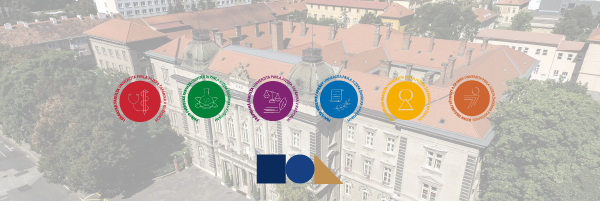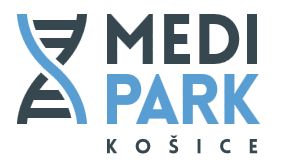The graduate of the second level of studies in Biology, in study programme of Botany and Plant Physiology gains wide theoretical knowledge concerning biology of plants and methodical skills for research work. The graduate is able to present the results of research at conferences as well as by publishing. The graduate is able to continue in the third level of education in the following fields: Botany, Plants physiology and in the relative fields. The graduate is able to work at the universities, academic and other research departments, laboratories of agriculture companies.
The graduate of the second level of studies in Biology, in study programme Zoology and Animal Physiology is able to work and solve independently the problems of biological research as well as the practical tasks of applied biology. The graduate gains information about the methods used in research of living systems concerning different levels of their organisation. The graduates gain basic knowledge of biological fields: genetics, molecular biology, plant and animal physiology, cytology, immunology, microbiology, botany, zoology and ecology as well as basic knowledge in the field of chemistry and relative fields: biophysics, biochemistry, bioinformatics. The graduate of this field of a study is able to work independently with scientific literature and use gained theoretical and scientific knowledge for solving various tasks. The graduate can work at universities, health care, research laboratories and Slovak Academy of Sciences and foreign pharmaceutical companies.
The graduate of the second level of studies in Biology, in study programme Cell and Molecular Biology and Genetics is able to work and solve independently the problems of biological research as well as the practical tasks of applied biology. The graduate gains information about the methods used in research of living systems concerning different levels of their organisation. The graduates gain basic knowledge of biological fields: genetics, molecular biology, plants and animal physiology, cytology, immunology, microbiology, biotechnology, botany, zoology, human biology and ecology as well as basic knowledge in the field of chemistry and relative fields. The graduate can work as a member of research group or as independent researcher.
The graduate in the field of Inorganic Chemistry is able to work both as a member of a research group and independently. The graduate is able to apply gained theoretical knowledge in technical practise and in research. The graduate gains deep experience in the field of inorganic chemistry as well as in practical research experience with inorganic chemical compounds and matters using progressive methods of research. The graduate gains basic knowledge concerning the measuring and technological instruments. The graduate is prepared to work with scientific literature especially in English language, to formulate the scientific problems, to propose new research methods, to choose appropriate experimental techniques for solving scientific problems. The graduate is able to work as a researcher at universities, academic and other research departments, or in private sector. The study is focused on the preparation for the third level of education.
The graduate of the second cycle of higher education in the field of Organic Chemistry deeply understands the studied theories, methods and procedures used in chemistry. The graduate is specialised in the field of organic chemistry. The graduate is able to realise research independently as well as to use chemical terms and methods. The graduate gains the basis of chemical informatics and can work with organic database. The graduate is also able to teach some specialised subjects of chemistry at University as well as to lead scientific team as well as to plan research work independently. The study is focused on the preparation for the third level of education in the field of organic chemistry.
The graduate of the second cycle of higher education in the field of Biochemistry gains knowledge of scientific methods of biochemistry and is able to use them in creative way in different interdisciplinary fields. The graduate is also able to teach some specialised subjects at University as well as to lead scientific team and to plan research work independently. The graduate can work in various spheres, as follows: pharmaceutical chemistry, molecular biology, molecular medicine, biotechnologies, etc.
The interdisciplinary character of Chemistry opens the way for graduate of master study to find the work all over the world. The graduate can work in chemical, food and pharmaceutical industry, agriculture, health care, as well as a member of the research groups or in the other sectors. The graduate during the preparation of master thesis can focus on the following fields: analytical chemistry, physical chemistry, environmental chemistry, bioinorganic chemistry and bioorganic chemistry.
The graduate of the second cycle of higher education in the branch of Informatics gains deep theoretical and methodological knowledge about the key fields of informatics. During his studies he can choose from the following specialisations: neurone networks, theoretical informatics, logic of information systems, information safety. The graduate is able to use his knowledge in practical life in solving difficult problems; he is able to propose appropriate solutions for critical components. The graduate gains knowledge in research, he is actively using methods of scientific research, and work as a member of a research group, he is able to publish and to present the results of his research. After finishing the study, the graduate can work as a computer programmer, systems analyst or as a leader of a research team in the private and public sectors. The study is focused on the preparation for the third level of education in the field of informatics.
The graduate of master studies in the field of Biophysics gains experience in scientific methods of biophysics and ability to use them in creative way in different interdisciplinary fields. He is able to use theories and practical application of the interdisciplinary sciences. The graduate is actively using methods of scientific research. The graduate is able to communicate with specialists from following scientific fields genetics, cell and molecular biology, biochemistry, pharmacology, immunology and bioinformatics.
The graduate of the second cycle of higher education in the branch of Nuclear and Subnuclear Physics gains fundamental knowledge in the field of nuclear and subnuclear physics about the basic structure of matter and the basic interactions. He is able to use scientific methods of research and development in subnuclear physics. He knows actual programming languages and mathematical bases of statistical and analytical programmes. The graduate gains knowledge in research, he is actively using methods of scientific research, and he can actively participate in research programs. The graduate can work in the following areas: medicine, biology, environment protection or like programmer or manager.
The graduate in the field of Physics is prepared for solving independently research tasks at the departments of basic and applied research. The graduate gains theoretical and experimental knowledge of classical and quantum physics, computer and mathematical physics, astronomy and astrophysics. The graduate knows actual computing systems, bases of programming, and he is able to use computers in research experiments. The graduate can actively use experimental methods, mathematical and physical models. The graduate can work as a system analyst or like programmer or manager. The study is focused on the preparation for the third level of education in the field of physics.
The graduate of master studies in the field of Physics of Condensed Matter gains knowledge in the field of physics of condensed matter that are at the level of contemporary state of research in the world. The studies are profiled by different disciplines: structure of solid matter, quantum theory of solid matter, physics of low temperatures, physics of metals, electronics and magnetism of solid matters. The graduate gains knowledge in research, using methods of scientific research. The graduate can work as a system analyst or like programmer or manager. The study is focused on the preparation for the third level of education in the field of physics.
The graduate in the field of Mathematical Informatics gains basic knowledge in the field of informatics and deep knowledge in mathematics, which helps to develop the field of informatics. The graduate is able to work as a member of research group. The graduate is able to use independently scientific literature and communicate in English language. The scientifically orientated graduate can continue in the third level of education.
The graduate of the second cycle of higher education in the field of Mathematics should by able to study independently from the theoretical and practical point of view scientific literature as well as to use effectively gained information. He gains knowledge about the newest trends in the respective field of a study. He can apply gained information in solving the problems in the social practise. The graduate can work all over the world as a university teacher or researcher. The study is focused on the preparation for the third level of education in the field of mathematics.
The graduate in the field of Managerial Mathematics gains basic theoretical training, knowledge and experience from operating system, and from numerical and statistical methods. The graduates can work individually or in team with experts from another fields. They can work as researchers, at the management departments, in management teams in private and public sectors and also as a teachers and members of university staff. The graduate is prepared for the third level of higher education.
The graduate of the second cycle in the field of Economic and Financial Mathematics gains knowledge in the field of mathematical methods used in economy, finance and insurance sector. The graduate is able to use computing systems as well as existing programmes of financial and statistic packages. The graduates is able to create his own programmes and to work with scientific literature in foreign language. The graduate is able to work in banks, insurance agencies, consulting and investment companies, also in state administration area.
The graduate of the second cycle in the field of General Ecology and Ecology of an Individual and Population can be focused on one of the three following specialisations: biology, chemistry and geography. The graduate is able to identify and interpret the interactions in the environment according to his specialisation. The graduate is able to solve independently some tasks concerning protection and creation of environment. The graduate can work as a researcher, in the organisations of environment protection, etc.













